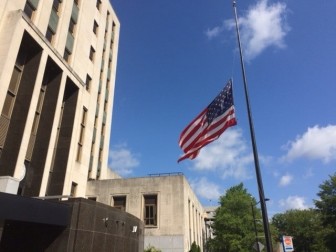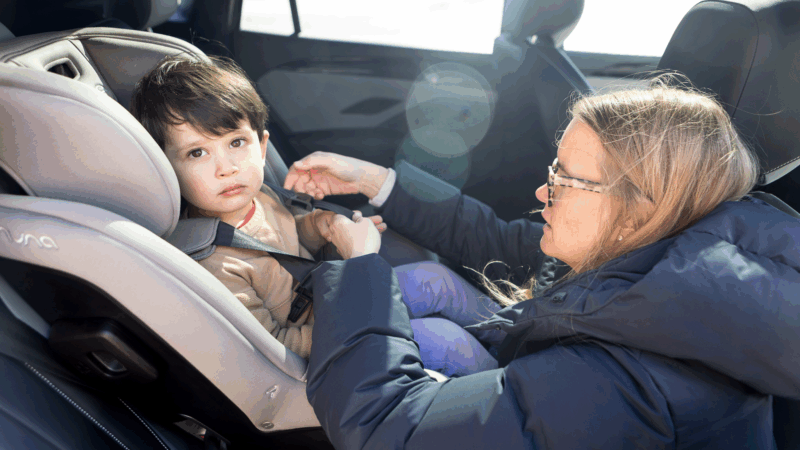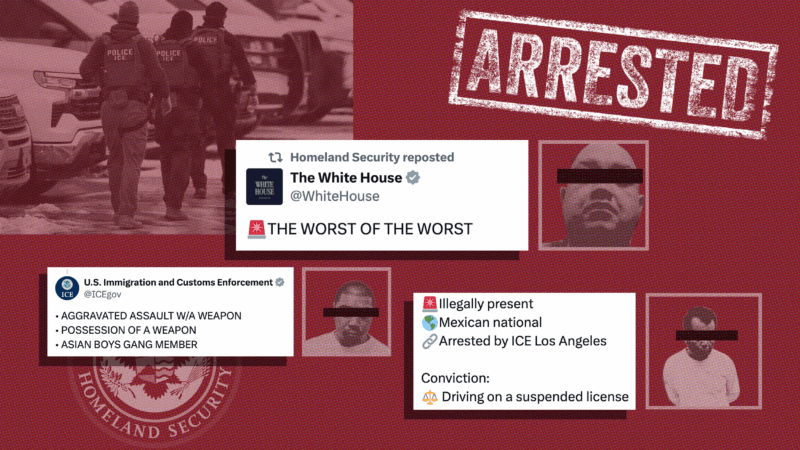Birmingham City Leaders Discuss Race, Community After Dallas Shootings
The American flag that hangs outside Birmingham City Hall was already flying at half-mast to honor the 49 victims in the Orlando nightclub shooting that happened almost a month ago. City officials say the flag will probably stay that way.
Birmingham Mayor William Bell and Police Chief A.C. Roper met today to address three separate shootings this past week involving black men and law enforcement.
Police killed a black man in Baton Rouge, Louisiana, on Tuesday night and another black man was shot and killed by police near St. Paul, Minnesota, on Wednesday. This sparked a peaceful protest in Dallas Thursday night that ended in the deaths of five police officers. Dallas Police Chief David Brown says the suspect, a black man, told authorities he was upset about the police shootings and wanted to kill white people, namely white police officers.
Mayor William Bell says incidents like these involving African-Americans and the police can potentially lead to stigmatizing generalizations about both groups.
“And part of the community relationship is to get people to understand that there’s a bigger picture out there,” Bell says. “That we should not paint with a broad brush all police officers. [And] Police officers and the general public should not paint all African-Americans with that same brush.”
Bell says that, as black men, he and Chief Roper understand the challenges facing African-Americans.
Roper commented on how, he says, the Birmingham Police Department was once on the wrong side of history. Racially charged incidents like the ones this week are why the department strives to strengthen its relationship with the communities it serves, he says.
“We cannot be successful without community support. As chief, I fully understand that. Our officers understand that,” says Roper. “And so, we have to build that bridge between the community and the police department.”
The group Black Lives Matter will hold a solidarity protest tonight at Kelly Ingram Park. Roper says the police will be present at the event despite the incidents in Dallas. But police can’t be everywhere and citizens are also responsible for public safety, Roper adds. He says if someone sees suspicious behavior they should say something.
Parents, are you sure your kid’s car seat is installed right? Here’s how to know
In this visual guide, certified car seat experts walk through common installation mistakes and how to fix them. Learn what a secure car seat base and a tightly fastened tether look like and more.
Trump announces ‘major combat operations’ in Iran
Israel and the U.S. have launched strikes against Iran, with explosions reported in Tehran and air raid sirens sounding across Israel.
Trump says he is ‘not happy’ with the Iran nuclear talks but indicates he’ll give them more time
U.S. President Donald Trump said Friday he's "not happy" with the latest talks over Iran's nuclear program but indicated he would give negotiators more time to reach a deal to avert another war in the Middle East.
Bill Clinton says he ‘did nothing wrong’ with Epstein as he faced grilling over their relationship
Former President Bill Clinton told members of Congress on Friday that he "did nothing wrong" in his relationship with Jeffrey Epstein and saw no signs of Epstein's sexual abuse as he faced hours of grilling from lawmakers over his connections to the disgraced financier from more than two decades ago.
How the federal government is painting immigrants as criminals on social media
Experts say this kind of media campaign is unprecedented and paints a distorted picture of immigrants and crime
Pentagon puts Scouts ‘on notice’ over DEI and girl-centered policies
After threatening to sever ties with the organization formerly known as the Boy Scouts, Defense Secretary Hegseth announced a 6-month reprieve








